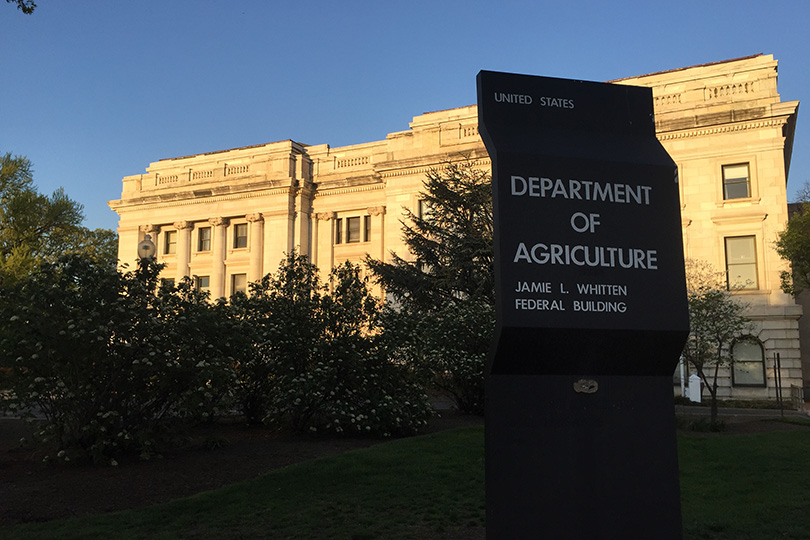By Jennifer Dorsett
Field Editor
The U.S. Department of Agriculture (USDA) is asking for public input on the proposed rule to create a National Bioengineered Food Disclosure Standard (NBFDS) as mandated by Congress in 2016.
The rule aims to establish a uniform way for food companies to inform consumers about bioengineered content. Portions of the rule include the appearance and placement of the disclosure, as well as establishes a threshold for ingredient levels before the product must be labeled as bioengineered.
The 106-page rule also contains definitions on what is considered a bioengineered ingredient and a list of exemptions available.
USDA wrote it considered alternative phrases, such as “genetically modified” or ”genetically engineered,” but ultimately decided the term ”bioengineering” “adequately describes food products of the technology that Congress intended to be within the scope of the NBFDS.”
Texas Farm Bureau national legislative director Laramie Adams said the proposed rule is based on sharing factual information instead of the typical misinformation and scare tactics surrounding bioengineering.
“Our farmers and ranchers have nothing to hide,” Adams said. “They’re busy providing the world’s safest food supply to consumers at an affordable price. This is just one more way to show consumers how agriculture and technology work hand-in-hand to meet the demand for the safest and highest-quality food products.”
Adams said the standards will be most effective if all parties provide input on the labeling rule and encouraged farmers and ranchers to submit comments.
“We want this rule to be as transparent as possible without creating any undue burden on agriculture or anyone else,” Adams said. “The approach USDA is taking on this rule proposal is a step in the right direction. We look forward to our continued engagement on this issue to provide farmers, ranchers and consumers the certainty they deserve.”
The American Farm Bureau Federation (AFBF) also hailed the proposed rule as positive for both agriculture and consumers.
“The proposed National Bioengineered Food Disclosure Standard will give consumers a valuable resource for making informed decisions about food,” AFBF President Zippy Duvall said. “Just as important, USDA is doing this the right way, providing consumers access to information about their food purchases, while also allowing farmers and ranchers to embrace the sustainable tools of modern agriculture.”
USDA said the rule will provide a uniform standard to consumers who want more information about their food and avoid a patchwork system of state laws and labels that could be confusing and might drive up food costs.
The agency is encouraging all interested parties to submit comments to determine the best way to move forward with the new rule.
“This rulemaking presents several possible ways to determine what foods will be covered by the final rule and what the disclosure will include and look like,” U.S. Agriculture Secretary Sonny Perdue said. “We are looking for public input on a number of these key decisions before a final rule is issued later this year.”
Due to the congressionally-mandated timeline, the comment period will not be extended, according to USDA.
All comments must be received by July 3 in order to be considered.


I believe it is our right to know what is in our food, and how it was grown. We should know whether we are consuming GMO foods or not as well as what kind of pesticides or herbicides if any were used when growing them. Since we have no choice but to eat, All food consumers have the right to know what it is they are consuming in their food.
There is limited GMO labeling now. There are more than 27,000 products in the non-GMO Project and, of course, organic products are certified GMO free. Organic is not pesticide free, as the larger operations use naturally occurring toxins. But organic and conventional are as safe as modern science can certify. Most folks that want a GMO label want a warning label, which would be expensive, not practical, not fair and not accurate.
Changing the term from GMO to “bioengineered” only disguises the negative connotation with which the public has become familiar. The USDA should reconsider. The disclosures to consumers are definitely in order, but proposed rules should be presented to the public in a condensed form if the USDA is genuinely seeking comment from the average consumer, most of whom will not be interested in plowing through the minutiae of government regs.
Our food should definitely be labeled